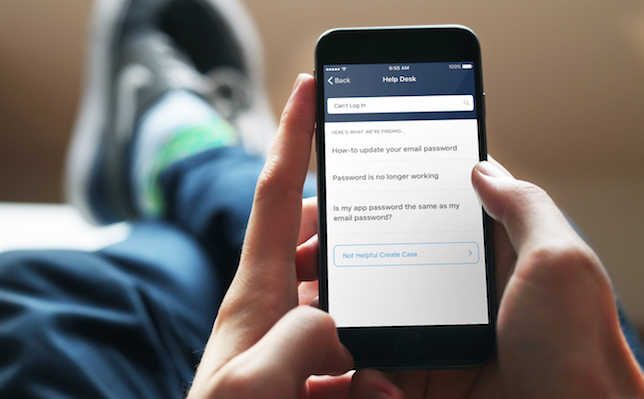ClearScholar Integrates Salesforce to Make Campus Apps More Student-Centric

Image: ClearScholar.
As higher education increasingly shifts to become more student-centered, companies in the ed tech world are following suit. ClearScholar, for example, recently partnered with Salesforce.org, the philanthropic arm of Salesforce, to help drive mobile connectedness on campus and boost self-advocacy for students.
ClearScholar’s mobile student safety and engagement platform helps institutions connect students to campus events, news and activities that suit their interests and needs. It is also designed to enhance safety technology at colleges and universities. Now, through the partnership, ClearScholar leverages Salesforce Service Cloud for case management, a searchable knowledgebase, usage reporting and more to help decrease the number of service inquiries a university receives.
Vice President of Product at ClearScholar Jason Stele told Campus Technology, “We found that a lot of the institutions that have adopted [Salesforce Service Cloud] need help to realize the value that they have invested.”
ClearScholar acts as “a mobile on-ramp” that taps the enterprise customer service platform and creates select use cases where providing a mobile optimized view makes sense for navigating certain material on a small screen.
As an example, Butler University was as already a Salesforce client when ClearScholar made an app for the university. Chief Information Officer Pete Williams saw that the university already had a significant investment with Salesforce and asked ClearScholar to come up a solution that could bring Salesforce closer to the students — starting with the IT help desk.
“Initially, we rolled out with all IT help desk types of articles so students can query things like ‘WiFi in my dorm is out’ or ‘how do I reset my password for an LMS’ — things like that where they’d normally have to go into some sort of a portal and click layers deep to be able to find information or physically talk to someone,” Stele explained. “Now, even when it's 2:00 in the morning, students can easily through our app query the knowledgebase, with everything in real time. They instantly get access to numerous articles from an IT focus, so that they don’t need to create more tickets for Butler to manage.”
In addition, providing students with easy access to self-service allows them to put self-advocacy into practice, he said.
“Students are able to act as self-advocates and increase their level of confidence that they are able to — through a self-service type of path — query a knowledgebase,” said Stele. “They’re getting the answers on their own, which has inspired Butler to expand this proof-of-concept to several functional units such as students affairs and registrar. When students have questions about advising types of services, or really anything, they’ll be able to place that self-service information into an article type of a format that’s mobile-optimized and can inform the student.”
If students aren’t satisfied with the results found in the knowledgebase, they can click a button and generate a support ticket instantly that passes along relevant data on the student. An automated workflow identifies the appropriate people that can follow up with students’ requests, letting them know who they’re talking to help streamline the conversation.
“ClearScholar has provided the ability to have a singular mobile platform that provides a breadth of functionality and system integrations, in concert with a revolutionary way of providing prescriptive, personalized engagement with campus resources. This platform is vital for our mobile-first information technology strategy focused on meeting the needs of the evolving student and ensuring every possible mechanism is deployed for student success,” Williams said in a statement.
ClearScholar has initially rolled out the Salesforce integration at Butler and is working with several institutions of varying sizes that will launch in the fall semester.
About the Author
Sri Ravipati is Web producer for THE Journal and Campus Technology. She can be reached at [email protected].